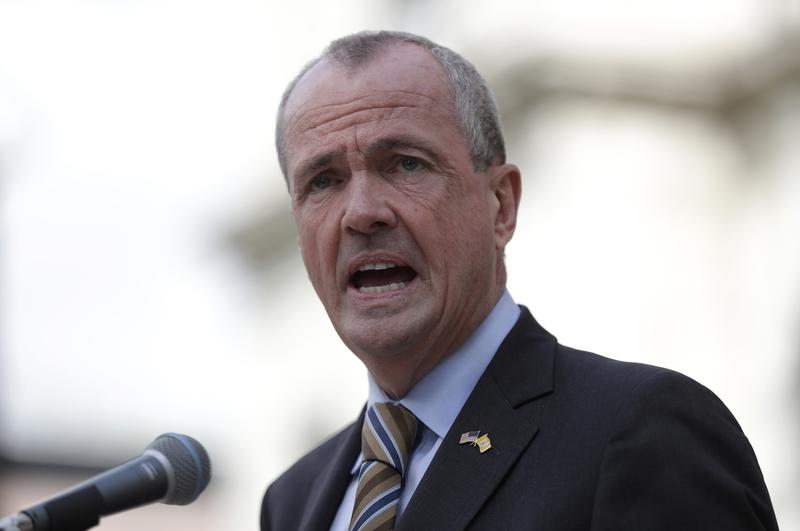With the 2020 election fast approaching, Congress and state legislatures have been closely reviewing their campaign finance laws. A number of states have introduced legislation to contend with so-called “dark money,” and New Jersey legislators, in particular, have been pushing for harsher disclosure regulations. Last week, unfortunately, supporters succeeded in getting the changes they sought signed into law.
On June 17, New Jersey Governor Phil Murphy signed S. 150, sweeping legislation that requires nonprofit groups that speak about issues of public importance to expose the private information of their supporters in certain, complicated circumstances. Interestingly enough, S. 150 is an identical version of a bill (S. 1500), that Gov. Murphy conditionally vetoed just one month ago.
S. 1500 was introduced to crack down on speech by nonprofits about legislative and electoral issues. It proposed to do so by defining a newly created category of “independent expenditure committees” (IE committees), which are subject to many of the same disclosure regulations that candidates, PACs, and political party committees are forced to follow. According to a letter the Institute for Free Speech wrote to the New Jersey Senate Budget and Appropriations Committee on January 17:
The bill would define such groups as any organization formed or operating under Sections 501(c)(4) (advocacy groups) and 527 (political organizations) of the Internal Revenue Code, so long as the organization: engages in influencing or attempting to influence the outcome of any election or the nomination, election, or defeat of any person to any State or local elective public office, or the passage or defeat of any public question [legislation, or regulation], or in providing political information on any candidate or public question [legislation, or regulation], and raises or expends $3,000 or more in the aggregate for any such purpose annually, but does not coordinate its activities with any candidate or political party.
Notably, S.1500 was amended throughout the legislative process, after IFS’s letter was written, to make activities focused on pending legislation or regulations subject to regulation as an “IE committee.”
The legislation further relies on (and amends) the existing definition of “political information” in New Jersey law, which “means any statement, including, but not limited to, press releases, pamphlets, newsletters, advertisements, flyers, form letters, Internet or digital advertisements, or radio or television programs or advertisements which reflects the opinion of the members of the organization on any candidate or candidates for public office, on any public question, or which contains facts on any such candidate, or public question whether or not such facts are within the personal knowledge of members of the organization.” (Emphasis added.)
Due to S. 1500’s broad and vague language, many groups whose primary purpose doesn’t concern political campaigns – and that simply provide factual information on issues before the Legislature – are going to be unnecessarily harmed by its provisions. In fact, the bill’s vague language is so sweeping that it goes far beyond what the U.S. Supreme Court has allowed when reviewing disclosure regulations. S. 1500 is particularly dangerous because it would require many nonprofit organizations to disclose personal information about their members and donors. As IFS President David Keating and Amol Sinha of the ACLU of New Jersey explain:
The legislation, S1500, would publicize names, home addresses, and employment information of donors to any New Jersey nonprofit that speaks on issues of public concern, such as discussing legislation with lawmakers, speaking to community members about grassroots causes, or publishing factual legislative scorecards.
As IFS has pointed out before, forcing nonprofits to disclose personal information about their members and donors can be harmful for both the people whose information is exposed and for the organization itself. When sensitive information is released, it can allow for employees and donors to be physically harmed or threatened by those with opposing views. There have even been instances where donors have had to leave their jobs after their donation records were released.
Simply put, organizations will suffer if fewer people donate to them out of fear that their personal information will be exposed. In addition, compliance with the required disclosure regulations will be very costly and time consuming, especially for those groups with smaller budgets and a mostly volunteer staff. This cost will be redundant for 527 groups who already have to report their donor information to the IRS.
To his credit, Gov. Murphy recognized that the language in this bill was too vague and would be harmful to nonprofit organizations and their supporters, which is why he originally conditionally vetoed the bill in mid-May. At the time, Murphy wrote in his veto message that:
Senate Bill No. 1500… goes beyond requiring disclosure of expenditures of election-related advocacy, extending its disclosure requirements to also apply to advocacy in connection with legislation and regulations. Significantly, the bill covers all issue advocacy conducted at any time, regardless of whether the advocacy is connected to an issue before the electorate. As noted, courts review disclosure requirements with exacting scrutiny and compulsory disclosure is permissible in narrow instances where there is a genuine and vital need for the disclosure because the information demanded is important and material to the electorate. It is unclear whether disclosure requirements for communications that are not connected to an election would withstand such judicial scrutiny.
In discussing the bill’s harms to privacy in association, Murphy noted that:
The concerns articulated by the Court in NAACP v. Patterson are as valid today as they were over half a century ago. Organizations that advocate on issues such as abortion rights, the Second Amendment, racial justice, and LGBTQ protections, to name just a few, remain polarizing and some individuals will be reluctant to contribute financially if those contributions are subject to widespread disclosure. As a result, broad disclosures such as those prescribed in this bill could significantly hinder the ability of organizations to advocate. Because I am not convinced that extending the bill’s disclosure requirements to communications unrelated to an election will withstand constitutional challenge and because doing so could significantly curtail the association rights of issue advocacy organizations, I am recommending revisions to eliminate the bill’s references to legislation and regulation.
Unfortunately, Murphy quickly changed his mind when threats of his veto being overridden by the Democratic-controlled Assembly and Senate arose. He opted to sign an identical version of the bill last Monday, despite the serious constitutional and practical concerns he articulated in his veto message. Murphy claims that he only agreed to sign the bill on the condition that a follow-up bill would be passed by the Legislature that rectifies his concerns with safeguarding groups that engage in issue advocacy from onerous disclosure requirements. In response, State Senate President Stephen Sweeney claimed that no such deal was ever agreed upon and that there are no plans in place to vote on any changes to the bill at this time.
S. 150 desperately needs amending before organizations are forced to abide by its complex and unworkable requirements. If the now-law remains in its current form, it will have severe consequences for many groups speaking about policy issues in New Jersey. This law will not just affect organizations whose goal is to influence politics on a regular basis, but also nonprofits that engage on a limited basis on specific issues of concern to state residents. Not only will these groups be affected, but so will their donors, causing potentially serious financial harm to the ability of these organizations to advocate for their missions. To be clear, the changes Murphy is requesting don’t go nearly far enough to rectify the concerns the Institute for Free Speech has with this bill, but they would lessen the bill’s punitive and speech-chilling impact on all manner of groups that speak about public policy in New Jersey.
Regardless, S. 150 is a dangerous law that violates the free speech rights of nonprofits and their donors. It needs to be fixed before it does serious harm to civic discourse in the Garden State.














